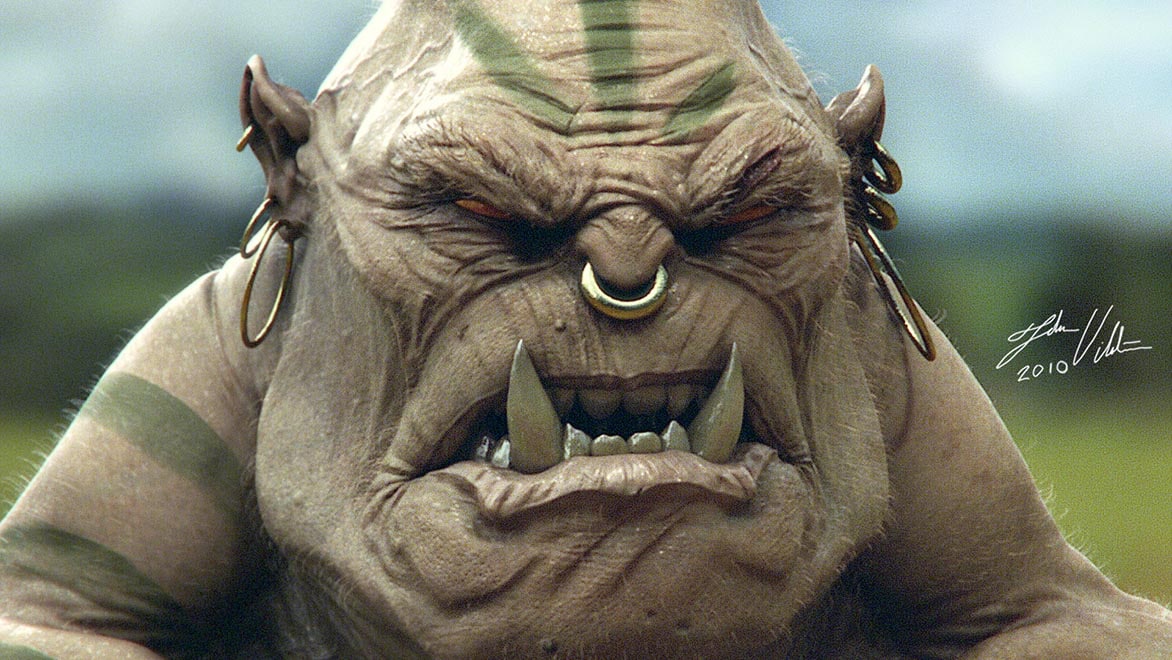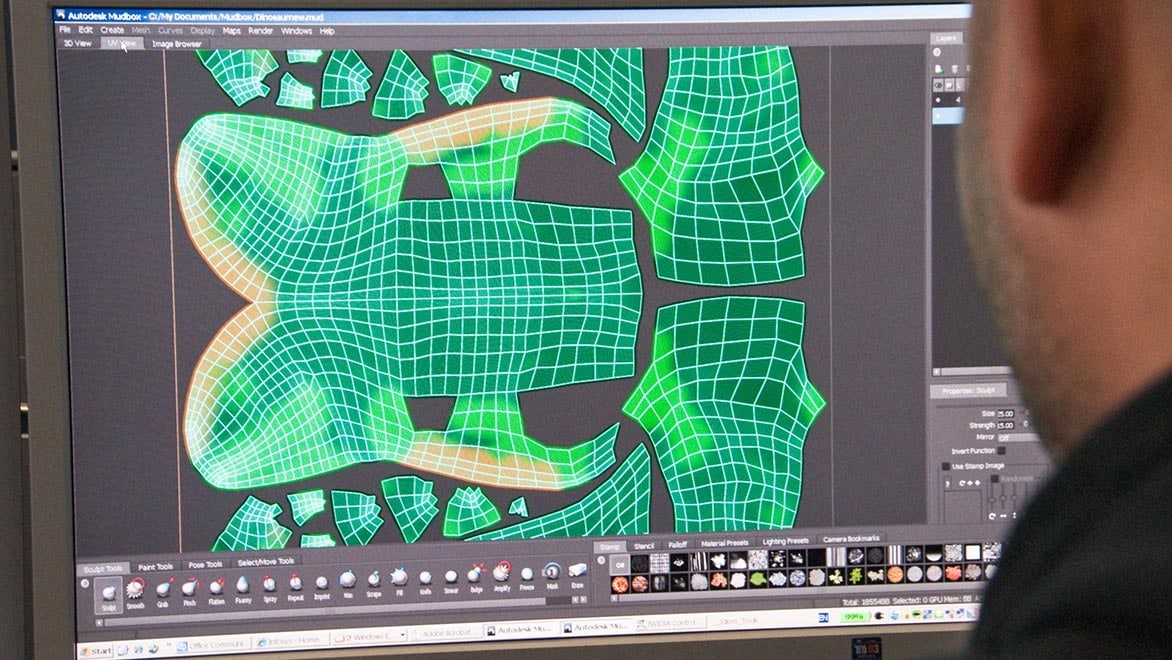& Construction

Integrated BIM tools, including Revit, AutoCAD, and Civil 3D
& Manufacturing

Professional CAD/CAM tools built on Inventor and AutoCAD
In 3D animation (US site), games (US site) and entertainment, digital sculpting is the art of creating detailed objects from raw material. Just like real-world sculpting, tools are used to pinch, pull and smooth surfaces virtually.
Digital sculpting is a method for making detailed 3D models that’s particularly suited to organic surfaces like faces, skin, foliage, etc. This makes it a popular choice for character design (US site), turning concept art into 3D models for animation in TV, films and video games (US site).
Just like in real sculpting, a digital sculpting project starts with a piece of raw material in the software – a virtual ball of clay – and the artist uses their tools to shape details.
3D modelling is more suited to most digital art processes such as creating buildings or built objects because the geometry has straight lines or consistent curves. This allows the software to extrude each polygon across its length without extra computation to topologise the points in between.
A digitally sculpted object has an intricate polygon mesh that interacts with tools just like real clay does, but editable to a far deeper level.
Digital sculpting software tends to impose a higher processing load on your equipment, but it's a compelling choice for several reasons.
The most important benefit of 3D digital sculpting tools by far is the detail – with every pore, hair, scar, vein or gnarl bought to vivid life.
Because it replicates sculpting in the real world, digital sculpting software can be more intuitive than the more technical toolset of 3D modeling.
3D modelling has more prescribed use cases like architecture and engineering, but digital sculpting tools give you a much broader conceptual framework to create in.
It's possible to create organic or detailed surface geometries using 3D modelling, but comparable designs made by digital sculpting software will look more natural and physically feasible.
Scale your studio’s rendering and simulation capabilities, while equipping artists with powerful modelling and animation tools.
Explore these monstrous achievements.
GHOST VFX
Ghost VFX worked on director Roar Uthaug's action-adventure romp Troll, and Autodesk's digital sculpting software played a central role.
Image courtesy of Netflix
MKALI'S MISSION
A group of remote artists and animators set up a completely cloud-based animation studio to create an epic 3D animation.
ADRIAN BOBB
VFX artist and animator Adrian Bobb’s feature film The Fore-men showcases his digital sculpting abilities.
Whether you're a novice or a seasoned user, find everything you need to know in our comprehensive help centre.
Digital artist Jamie Scherer showed how simple digital sculpting can be, creating a futuristic chair using the digital sculpting tools in Autodesk fusion in only 13 minutes.
Learn about creating high-resolution models with Maya's native digital sculpting tools.
In this video, artist Aaron Magnin explains how digital sculpting enabled him to design an industrial crane hook without needing to create multiple sketches from different angles.
Mudkit includes an object alignment tool, the power to extract a mesh from selected surfaces, boolean geometry creation and a tool to automatically reskin mesh when your work distorts polygons.
Ask questions, share techniques and explore popular topics in the Mudbox user forum.
Digital sculpting emulates the art form of physical sculpting as closely as possible. Where you apply tools, brushes and effectors to a mass of clay in physical sculpting, digital sculpting lets you do the same in software.
Tool and process names have been taken directly from real-world sculpting so the software speaks your language.
3D modelling expresses lines and curves by the points between them, the polygon enlarged in the relevant dimension to enable textures, and other properties.
Using digital sculpting tools, artists can manipulate the mesh of polygons themselves. That lets creators drill down ever further, one layer at a time, adding more detail by manipulating the mesh using actions inspired by physical sculpting, such as pushing, pulling, pinching and smoothing.




